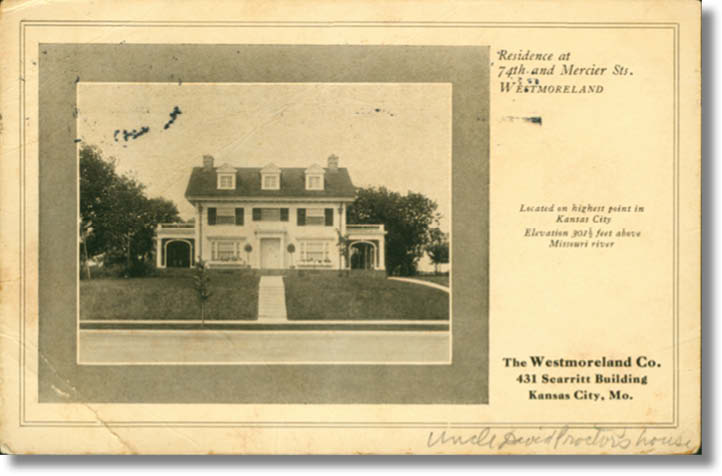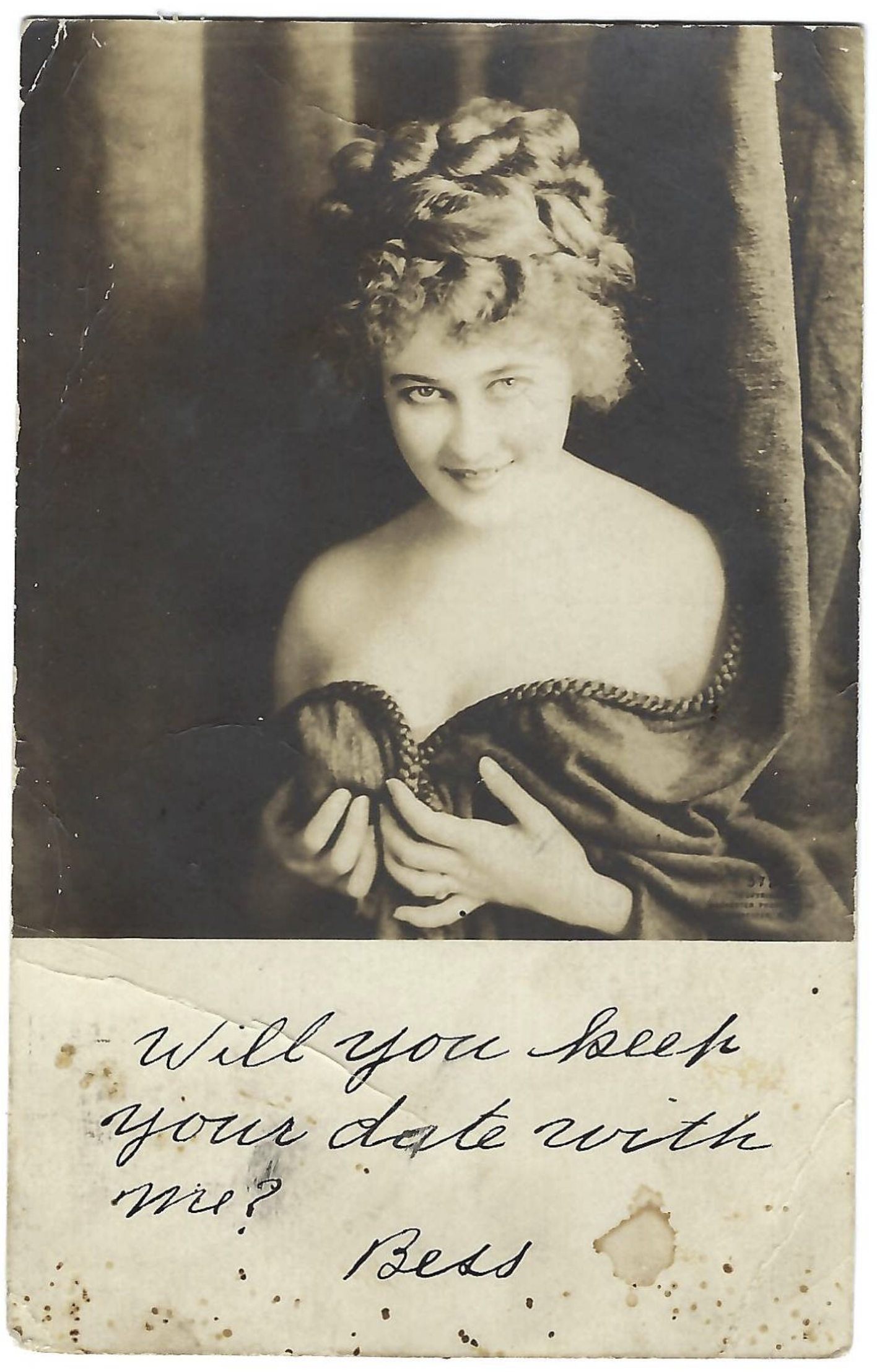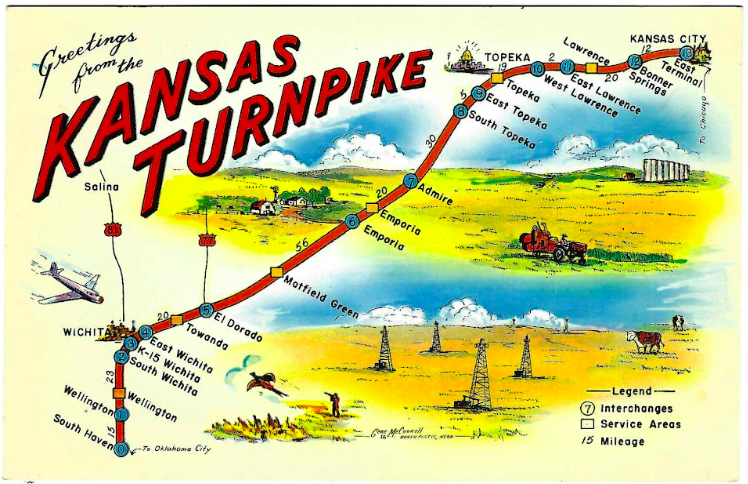By Michael Bushnell
Northeast News
August 17, 2016
This advertising postcard from The Westmoreland Company shows a residence at 74th and Mercier streets. The actual residence shown on the card is a house at 7404 Mercier St. that basically looks the same as it did when this postcard was published in 1914.
“Located on the highest point in Kansas City, 301.5 feet above the Missouri River,” reads the card. According to Google Earth, the lot on which this home stands is 1,024-1,025 feet above sea level, which translates to exactly 301.5 feet above the Missouri River where the municipal wharf used to be near the Broadway Bridge.
A hand-written note on the bottom of the card indicates the house belonged to “Uncle David Proctor.” Proctor was a local land developer around the turn of the 20th century in Kansas City. A native of Monroe County, David M. Proctor was born in 1881 and came to Kansas City in 1906. He practiced law with the firm of Borland, Pew and Proctor and was the president of the Westmoreland Company with offices at 431 Scarritt Building. The company managed a 100-acre development in present-day Waldo. A quote from marketing information of the company indicates: “a residential district comprising one hundred acres of the most beautiful ground in Kansas City with a main entrance at 74th and Broadway, literally where the city and the country meet.”
Proctor was appointed city counselor by Mayor William E. Kemp in 1946 and was instrumental in cleansing the city of the corrupt Pendergast machine that had ruled city politics for decades.
In 1936, he authored a book satirizing the Pendergast machine titled “Pay Day.” That was followed by a 1937 release, “False Faces on Quality Street,”and by his 1939 work, “Riding High.” All three sought to bring down political boss Tom Pendergast.
Proctor also served as a Missouri State Senator from 1921 to 1925, during which time he sponsored several bills pertaining to honest election laws in St. Louis and Kansas City.
This card was sent to Mrs. James M. Johnston of Monroe City on Sept. 29, 1914. The personal message reads: “Dear Martha, Anna arrived yesterday. Couldn’t get the vitolitos here but will send bottle from Ft. Worth tomorrow. We arrive there at 1:45 in the afternoon, leave here 8 pm this evening. All well here, all of us have had a delightful time. We have been on the go most of the time. With love, Jack.”



















